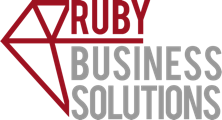As businesses around the world increasingly recognize the importance of sustainability, Canadian small and medium enterprises (SMEs) are uniquely positioned to lead the charge in eco-friendly practices. A key area of this transformation is in the realm of bookkeeping. Transitioning from traditional, paper-intensive methods to digital bookkeeping not only aligns with environmental goals but also enhances efficiency and accuracy. In this post, we will explore the benefits of digital bookkeeping, focusing on cloud-based solutions and digital document management, to demonstrate why a paperless office is not just a green choice, but a smart business decision.
Embracing Digital Bookkeeping: A Sustainable Choice
- Reduced Environmental Impact:
Traditional bookkeeping methods involve significant paper usage, from invoices to financial statements. By switching to digital methods, businesses can drastically cut down their paper consumption, thereby reducing their environmental footprint. This move aligns with the growing global emphasis on sustainable business practices, positioning your business as a responsible member of the community.
- Enhanced Efficiency and Accessibility:
Digital bookkeeping systems, especially those based in the cloud, offer unparalleled accessibility. You can access financial data anytime, anywhere, ensuring that business decisions are informed and timely. This level of accessibility is vital in today’s fast-paced business environment and is a significant upgrade over traditional methods which are often time-consuming and less flexible.
- Improved Accuracy and Compliance:
Digital bookkeeping minimizes human error, ensuring more accurate financial records. Automated processes reduce the likelihood of mistakes in data entry and calculations. Moreover, digital solutions are often updated to comply with the latest financial regulations, helping your business stay compliant with Canadian financial laws and standards.
- Cost-Effectiveness:
While the initial setup for digital bookkeeping might seem like an investment, it is cost-effective in the long run. It reduces the need for physical storage, cuts down on printing costs, and minimizes the time spent on manual data entry and record keeping. These savings can be significant, especially for SMEs operating with tighter budgets.
Cloud-Based Solutions: The Future of Bookkeeping
Cloud-based bookkeeping represents the pinnacle of digital financial management. These systems offer several advantages:
- Security and Backup: Cloud-based systems provide enhanced security features and automatic backups, safeguarding your financial data against loss or theft.
- Scalability: As your business grows, cloud-based systems can easily scale up to meet your expanding needs, without the need for significant additional investment.
- Integration: Many cloud-based bookkeeping systems integrate seamlessly with other business tools, streamlining processes like invoicing, payroll, and expense tracking.
Digital Document Management: A Step Towards Paperless Efficiency
Transitioning to digital document management involves converting all your financial documents into digital format and organizing them systematically. This move offers several benefits:
- Easy Retrieval and Sharing: Digital documents can be easily searched, retrieved, and shared, saving time, and improving collaboration.
- Reduced Physical Storage Needs: With documents stored digitally, the need for physical file cabinets and storage space is eliminated, freeing up office space and reducing overhead costs.
- Enhanced Security: Digital documents can be encrypted and protected with passwords, offering better security than physical documents.
Conclusion
Moving towards a paperless office through digital bookkeeping is not just an environmentally friendly decision but a strategic business move. It offers increased efficiency, accuracy, cost savings, and aligns with modern, sustainable business practices. For Canadian SMEs, adopting digital bookkeeping is a step towards not only environmental responsibility but also enhanced business performance.
As we embrace these digital transformations, it’s essential to partner with a bookkeeping firm that understands the nuances of these technologies and can guide your business through this transition smoothly and efficiently. Embracing eco-friendly bookkeeping is not just about keeping up with the times; it’s about setting a precedent for a sustainable, efficient, and successful business future.







